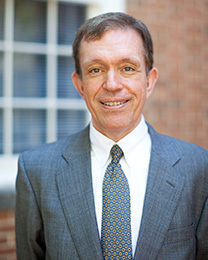
William G. Ross, the Albert P. Brewer professor of law and ethics, was invited by The Presidential Commission on the Supreme Court of the United States to provide a written testimony for its study of recent proposals for court reform. Ross was one of 17 legal scholars from across the nation who provided solicited testimony, which has been published on the Commission’s web page found on whitehouse.gov.
In April 2021, President Joe Biden issued an executive order to form the Commission in response to legislation introduced in Congress to add four more justices to the court. The Commission also studied various other court reform measures, particularly term limits for justices.
The Commission was made up of bipartisan experts on the court and the recent court reform debate. The Commission included legal, history and political science scholars, former federal judges and practitioners who have appeared before the court, and advocates for the reform of democratic institutions and of the administration of justice.
Ross’s testimony addressed the history of court-curbing movements and expressed opposition to proposals to increase the number of justices. His testimony was cited in the Commission’s final report, published Dec. 8, 2021. The report also referenced one of his books, A Muted Fury: Populists, Progressives, and Labor Unions Confront the Courts, 1890-1937, and one of his law review articles, a 1990 Villanova Law Review article concerning term limits for justices.
Ross said, “The Commission has performed an important public service by providing context and dialogue regarding controversial issues concerning judicial review and the Supreme Court’s role in the American political system. These issues are perennially controversial, but they have emerged as a subject of particularly intense discussion during the past two years.”
A graduate of Stanford University and Harvard Law School, Ross has been a professor at Cumberland School of Law since 1988. His teaching and research expertise includes professional responsibilities, civil procedure, and constitutional law and American legal history. He has written extensively about legal ethics, American legal history, and the federal judicial appointments process and often serves as a consultant and expert witness regarding legal fees and judicial ethics. Also an authority on federal separation of powers issues, Ross has published many works on the appointment of U.S. Supreme Court justices and other federal judges.
